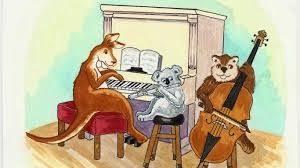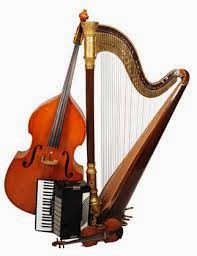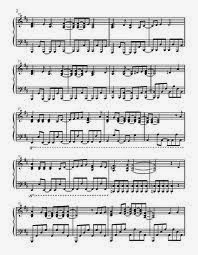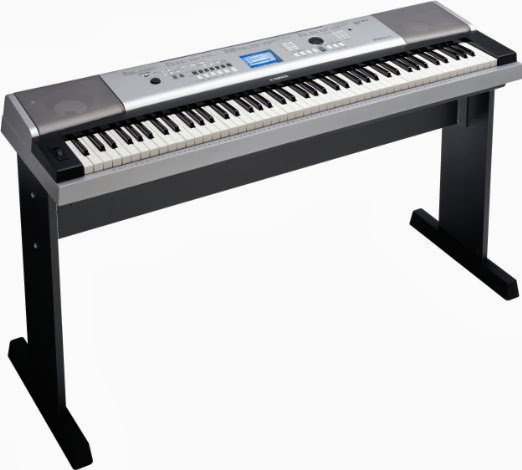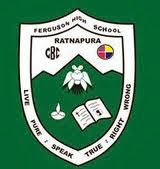
This is about learning music. I just self-published my book Help Me Learn Music and of course with it this blog. With this, I not only want to talk about music and introduce my book, but want to give help and assistance with music, mainly for children who are learning music- especially the piano. Yes, for graded exams too.
Tuesday, 21 January 2014
A Writer's Journey: Self Publishing Vs. Traditional: My Decision
A Writer's Journey: Self Publishing Vs. Traditional: My Decision: Those of you who have followed me here and on my other media outlets for some time will recall how adamant I've been about traditional p...
Monday, 16 December 2013
EAT, PRAY, LOVE…MUSIC!
MORE ABOUT PRACTISING
The way you practise must result in a strong lasting impression in your memory. If, whatever you practise and review, doesn't give this, then it will not help you much. It's like you study and study a subject before the exam but nothing stays in the mind. It has happened to all of us. If you forget your past, you will sure make the same mistakes again. It is the same in music practice.
Just like in other subjects, the pupil must learn, improve and remember what he/ she has learnt. It gets even better if the practising is enjoyable. Enjoying the process of learning, makes a big difference to the end result.
Practising, is best done daily.It's just like a daily exercise. Making up for the lost time hardly works. Practising for an hour instead of the daily half hour is certainly more stressful and tedious. Therefore, sitting down at the piano for an hour instead of the usual half hour, may not be effective. The pupil must be focused and prepared to do a bit of hard work which is mostly diligent repetition. And it is even better if he can enjoy it.
Well, some people will say if you are thinking of the time period of practice, then forget it. But for most of us, practising is a dreary exercise. Therefore, it is better to make some kind of a commitment than not at all.
Every now and then, our daily routine changes and everyday practice may not happen.
What should be done when daily routine brakes?
- Try every other day.
- Don't try to practise everything in one sitting; it becomes a tedious exercise.
- Hard and Easy way; one day have a really a hard, intense practise session and the next day an easy session. On the hard day: focus on weak parts or a new section or a piece that you have to learn. On the easy day: do some scales, pieces that you know already etc.
- Break into small sections and focus on a particular part that need to be improved.
The main thing is to practise daily, even if it is for a short time. It is much better to have daily maintenance than trying to do it all in a few days; it rarely works that way for a field that involves a practical aspect rather than a theoretical aspect. Same thing applies to keeping you room tidy!
What the pupil must realise is that it is better to have intense short practice sessions rather than sloppy long sessions.
Making it short and sweet is a sure way of getting good results.
Keep it slow and steady, for fast practising sessions takes you know where ( near the winning post).
The three main stages of learning music:
- Understanding
- Physical learning
- Feeding Emotion
2. But, however much you have understood the piece, it will not be helpful if you don't commit to the physical learning. Now that you have understood the piece, you must have the desire to learn it, an immense amount of patience, focus, determination and commitment to engage in the physical learning.
It is the physical learning that the first step to playing music.
3. The mind will understand the piece, but what your body can do about it comes after hours of practice. Once the physical ability to play is in place, it is time to set in emotions. Sad must sound sad and happy must sound happy! The dynamics and technique help enter emotions into a piece. More practice is necessary, for a piece to deeply set in one's memory and become a reflex. Then it helps to play by memory.
Watch this video for practising chords.
So what are your ideas about practising?
Your ideas are most welcome.
I am sure it will be useful for many.
In the next topic we will look at how to practise effectively.
Tuesday, 10 December 2013
EAT, PRAY, LOVE…MUSIC!
HOW TO PRACTISE?
9 ways to encourage practising
9 ways to encourage practising
Do not despair if you can't get your child to get down to practise, for this is normal. You may compare your little darling with someone else's, who practises without being told. Well, there are some children who are like that but they are very much in the minority. It is quite acceptable for a normal, good, average kid not to practise.
How would you get them to do it? Bribe them? Offer a reward? Or you say," You practise, or else…"! Well, parents who mean well try so many ways.
It is important for parents to show an interest in what they learn. Show your appreciation in a piece played well. Or just say that " I like that; can you play it again". This way you get them to practise automatically.
Main thing is that the child should be encouraged to pursue in the study of music. No one wants them to drop out in frustration or in plain bitterness of the subject.
It is important for parents to show an interest in what they learn. Show your appreciation in a piece played well. Or just say that " I like that; can you play it again". This way you get them to practise automatically.
Main thing is that the child should be encouraged to pursue in the study of music. No one wants them to drop out in frustration or in plain bitterness of the subject.
Let's look at some ways for motivation:
1. Give a time limit.
Practising for a half hour each day; but it must be done properly. During that half hour he/she can't run to the loo, answer the phone or look for the music sheet. It should be a solid half hour whether it is just one piece or the whole set of pieces that needs to be practised.
Practising for a set period of time isn't going to help much. What matters is how you practise.
Practising for a set period of time isn't going to help much. What matters is how you practise.
Time it, if it is necessary to make sure; there's no harm in being assertive.
2. Play every page three times a day.
This will seem too little, but for young ones especially up to about nine years works very well. It seems little enough, so therefore not too bad! At the end of the first day you may not see any results, but do it for a week and there, it will be.
If it is a new piece, play it five times a day until he/she can play it quite well.Then it can be down graded to three times a day.
3. Maintain a chart.
It must have columns for the day, period of practice and what level the player is at; from bad to good, sad to smiley face etc. Give a gold star for good results.
Stick it on the fridge and mark it as the practising progresses.
If she/ has done well by the end of the week, give a reward.
4. $ 0.20 approach.
Have two little cups, red and green; have a 20 ct. coin in the green cup; while practising, if he/she makes a mistake the coin goes into the red cup and each time it is played correctly, the coin goes into the green cup. At the end of the session if the coin is in the green cup he/she can keep it. But of course, you have to keep a watch.
It is always good to have a parent around when they are attending to practising; when you show an interest (even if you don't know any music) the child gets motivated and performs better, just like with school work.
5. Set simple goals that are achievable in a practice session; learn the first eight bars properly or get that scale right. It is all right to make mistakes but you have to learn from them.
6. Point System
This is good for the 12 upwards too.
Maintain a chart for each practice session. Give a point/points for each practice session. When it reaches, for example 250 points (you can make it any number of points as you wish), allow him/her to have the "treat" they always wanted; going to the movies with friends or buy that awesome t- shirt.
7. An exchange
How about exchanging practise time for a chore! Do you want to do the dishes, wash the toilet or tidy up your own room, or may be weeding the garden? We can all have a fair guess here!
8. Singing
Often, in the pieces for the young are with words. Try singing while they practise or sing it when they know it quite well. You will notice the encouragement they get to learn it even better.
9. Encourage them to play what they like too.
It must, of course, come at the end of the practise session. It'll be an incentive.
In all these methods, what is common is, the parent involvement. It is important that parents show an interest and get involved in their children's music education. Mothers go to soccer or rugby games and fathers go to netball games to cheer for their children even if they haven't played that game. So it should be for music. You don't need to know music to encourage your child.
3. Maintain a chart.
It must have columns for the day, period of practice and what level the player is at; from bad to good, sad to smiley face etc. Give a gold star for good results.
Stick it on the fridge and mark it as the practising progresses.
If she/ has done well by the end of the week, give a reward.
4. $ 0.20 approach.
Have two little cups, red and green; have a 20 ct. coin in the green cup; while practising, if he/she makes a mistake the coin goes into the red cup and each time it is played correctly, the coin goes into the green cup. At the end of the session if the coin is in the green cup he/she can keep it. But of course, you have to keep a watch.
5. Set simple goals that are achievable in a practice session; learn the first eight bars properly or get that scale right. It is all right to make mistakes but you have to learn from them.
6. Point System
This is good for the 12 upwards too.
Maintain a chart for each practice session. Give a point/points for each practice session. When it reaches, for example 250 points (you can make it any number of points as you wish), allow him/her to have the "treat" they always wanted; going to the movies with friends or buy that awesome t- shirt.
Or even a costume party!
7. An exchange
How about exchanging practise time for a chore! Do you want to do the dishes, wash the toilet or tidy up your own room, or may be weeding the garden? We can all have a fair guess here!
8. Singing
Often, in the pieces for the young are with words. Try singing while they practise or sing it when they know it quite well. You will notice the encouragement they get to learn it even better.
9. Encourage them to play what they like too.
It must, of course, come at the end of the practise session. It'll be an incentive.
In all these methods, what is common is, the parent involvement. It is important that parents show an interest and get involved in their children's music education. Mothers go to soccer or rugby games and fathers go to netball games to cheer for their children even if they haven't played that game. So it should be for music. You don't need to know music to encourage your child.
Friday, 6 December 2013
EAT, PRAY, LOVE…MUSIC!
HOLIDAY FUN
How to keep your child musically occupied.
Asking your child to practise every day is a good thing but may not necessarily work well for both mother and child. It would be like telling them to do their regular school work during the holidays. It's good but not good enough for holidays. Instead of getting them to read their school book, you would get them to read anyway, and when they come across a new word, find out the meaning and use it in a sentence, to get a better understanding of the word. Instead of doing the regular math, you would get them to solve a puzzle that involves mathematical principles. There are different ways of keeping your child constructively occupied during the holidays.
So what do we do with his/ her music lessons.
Must practise. True.
but…
Let's look at something different. How about making a musical instrument using vegetables. There's nothing expensive and all other tools you need can be found around your home.
The vegetables which are mostly used are,
marrow, carrot, potato, butternut etc.
Then, cabbage, moringa (in some parts of the world it is called drumsticks) because they look like drum sticks!
As tools, you would need, a knife, spoon, nylon string or rubber bands, some pins etc.
I decided to share this interesting video from YouTube which shows how to make simple musical instruments from vegetables.
I am sure that you and your children would enjoy watching these videos as much as you enjoyed following the instructions. Perhaps, unknowingly, you may have found a way of getting them to eat it!
I am sure, this will be a lot of fun!
I am sure, this will be a lot of fun!
Tuesday, 3 December 2013
EAT,PRAY,LOVE…MUSIC
FUN WITH MUSIC DURING THE HOLIDAYS
The holidays are coming! Hooray!! So what shall we do? Some of us will go away from home while some of us will be staying at home. Some will go on a long vacation while some will do short ones; like going away for the weekend.Not everyone get days off just because it is the season.
Well, whether you go away or stay at home, you've got to keep your children occupied throughout the day, which is not easy, if they are primary schoolers. It shouldn't be always work or always play; either way, it makes Jack a dull boy! So it is good to have a balance of both- more play and less work- yep! I think it is fair during the holidays.
I will focus on keeping your child's music interest alive during the holidays. It not anything else, this is the time to forget your music!
Keeping in touch doesn't mean that they have to do the same old things that they did in class. There are lots of different things to do. Instead of reading a school book, you can start reading a story book; and if there is a new word, look up for the meaning; use it in a sentence. That's an example for reading.
I will focus on keeping your child's music interest alive during the holidays. It not anything else, this is the time to forget your music!
Keeping in touch doesn't mean that they have to do the same old things that they did in class. There are lots of different things to do. Instead of reading a school book, you can start reading a story book; and if there is a new word, look up for the meaning; use it in a sentence. That's an example for reading.
I have some great ideas for music.
Of course one has to practise one's pieces, if they are preparing for an exam or a competition. But who wants to sit and do scales and all those boring pieces day after day during the holidays?
Not me!
First, we'll see what fun things we can do with music learning. Instead of learning to play music, what if we try to make an instrument? Yes, make an instrument. But how? With what?
A good idea would be to try what is available at home. Things like, drinking straws, the cylindrical cardboard of tissues and kitchen towels, vegetables… You can think of so many.
Here are some examples; parents can help the children.
carrots, marrow, butternut are the popular ones.
Also, you will need, a plastic knife a spoon and some nylon string or rubber bands.
Now see this video.
How to make an oboe with a straw.
here's another one
Now this is a serious one!
Sure you'll have fun with these;
read more…
Do you or your kids have other ideas? Please post them here, so we can all share and learn from each other while having fun.
Saturday, 26 October 2013
ABOUT ME
ABOUT ME
I should have done this first! But I was so involved about my book, I started with it; anyway, it is better late than never!
I am Surangika Senanayake (nee Palihakkara), born in Sri Lanka and now living in New Zealand. I have a sister and a brother, both living in Sri Lanka, which is a beautiful island in the Indian Ocean; voted as the No.1 tourist destination for 2013 by Lonely Planet and you will see lots of beautiful images and articles about Sri Lanka in National Geographic.
I received my primary education at Ferguson High School in Ratnapura- a city very famous for precious stones such as amethists, garnets, rubies and sapphires. Also, the world's first woman prime minister, Mrs. Sirimavo Bandaranayake was a student at Ferguson High School. This is where I started learning music; I was only 6.
Here are some images.
The school of my childhood; loaded with memories.
The emblem of the school
Mrs. Sirimavo Bandaranayake.
The world's first woman prime minister.
I am still in touch with some of the friends, thanks to Facebook.
Now let me tell a bit about my secondary education. It was at Ladies' College, Colombo. I qualified in music while studying here. I have lots of memories about crazy things we did then, as any teenager would. But we had tough exams too. I am very much in touch with my friends from Ladies' College. It was from here that I entered university to obtain a B.Sc degree.
This is a snap of the back play ground of the school; I don't have a front view; Shall get one later.
And this is the emblem.
After graduation, I worked for a little while; met my future husband; got married and went to live in Oman for 15 years where we started a family. Our daughter and son were born in Sri Lanka but grew up in Oman. They went to the British School there.
I was a stay-at -home mum and my friends asked me to teach music. So, that's how it all began!
Then we emigrated to New Zealand, and after many years, I followed a course in proofreading and editing with New Zealand Institute of Business Studies. This gave me the confidence to write a book.
I was a stay-at -home mum and my friends asked me to teach music. So, that's how it all began!
Then we emigrated to New Zealand, and after many years, I followed a course in proofreading and editing with New Zealand Institute of Business Studies. This gave me the confidence to write a book.
And that's how Help Me Learn Music was born!
Subscribe to:
Comments (Atom)
